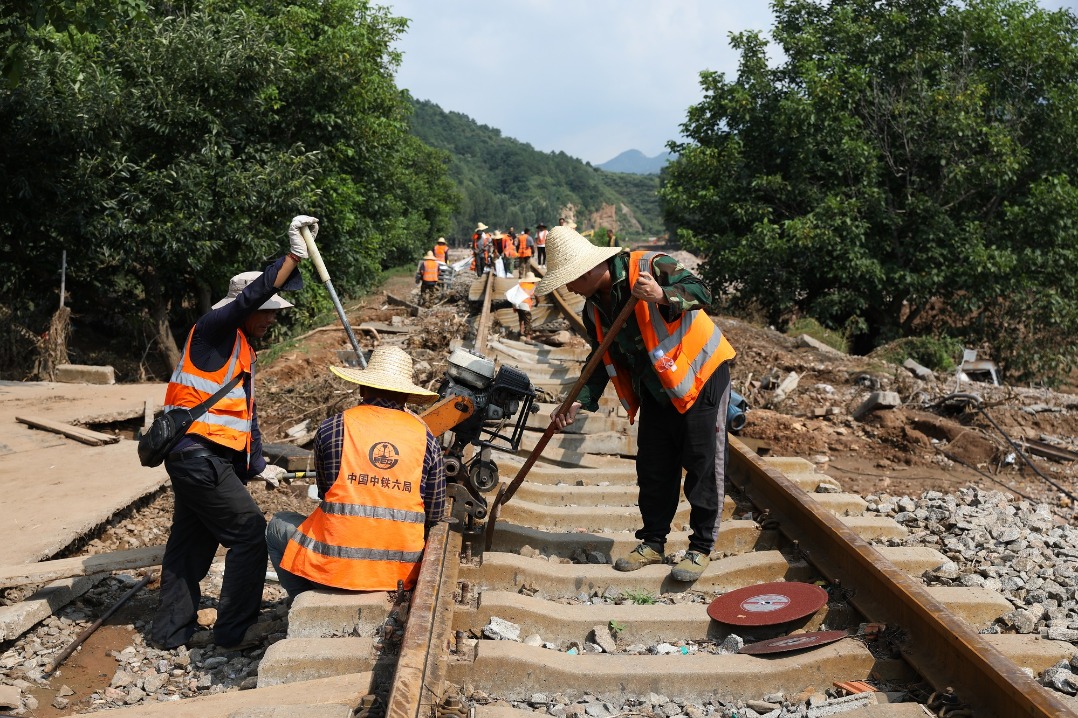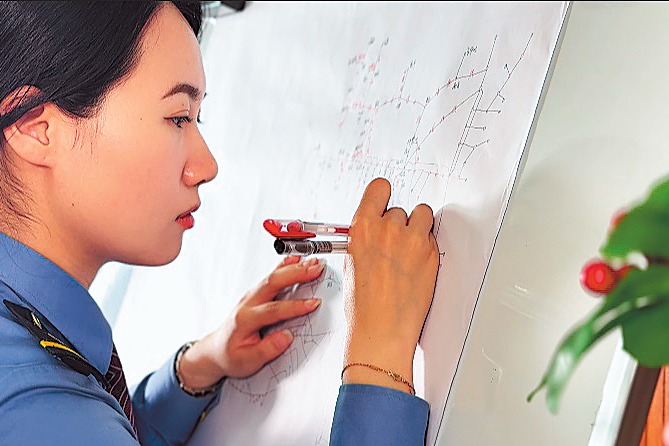How China brings peace, stability to the Asia-Pacific

by Xinhua writers Dan Ran, Wang Lili
SINGAPORE -- Military officials, diplomats and experts from across the Asia-Pacific gathered in Singapore over the weekend for the 17th Asia Security Summit, commonly known as the Shangri-La Dialogue, discussing security challenges and cooperation prospects in the region.
This year's dialogue took place while the Asia-Pacific is witnessing a series of positive geopolitical changes, including a detente on the Korean Peninsula, improved ties between some major countries, and enhanced efforts to settle regional disputes.
In maintaining regional peace and security, observers say, China has played a crucial role by upholding its concept of a comprehensive, cooperative and sustainable security.
URGE DIALOGUE ON KOREAN PENINSULA
Experts praised China's strong support for the detente on the Korean Peninsula that paved the way for an upcoming direct meeting between the top leader of the Democratic People's Republic of Korea (DPRK) Kim Jong Un and U.S. President Donald Trump.
In its effort to achieve denuclearization and peace on the peninsula, China proposed a dual-track approach, which advocates dialogue and consultation towards a political solution and stresses the need for Pyongyang and Washington to meet each other halfway.
Harsh rhetoric and confrontation have complicated the Korean Peninsula nuclear issue, Lt. Gen. He Lei, vice president of the Academy of Military Science of the Chinese People's Liberation Army (PLA) and head of the Chinese delegation to the Shangri-la Dialogue, said in his speech on Saturday.
"What relevant parties are doing to ease tensions on the Peninsula is actually in line with China's proposals," Ruan Zongze, deputy head and senior fellow at the China Institute of International Studies (CIIS), commented ahead of the Shangri-la Dialogue, noting that China had long urged direct dialogue and consultation between Pyongyang and Washington.
The recent remarks by Chinese Foreign Ministry spokesperson Hua Chunying reaffirmed China's support for efforts to denuclearize the Korean Peninsula while stressing the need to heed Pyongyang's security concerns in the process.
"When you can take into consideration each other's concerns, it becomes much easier to find a solution to the problem," Chen Gang, a senior research fellow with the East Asian Institute at the National University of Singapore, told Xinhua.
?
STRONGER TIES FOR REGIONAL STABILITY
China's security vision for the Asia-Pacific is simple: major countries that get along will boost peace, stability and economic development.Beijing has long pursued building partnerships across the region.
In April, China and India pledged to open a new chapter in bilateral ties, with an informal summit held in central China between Chinese President Xi Jinping and Indian Prime Minister Narendra Modi. The leaders of the world's two largest developing countries reached a consensus on issues of major concern.
"The great cooperation between our two great countries can influence the world," Xi said during the meeting, and Modi said the meeting was of historic significance.
In his keynote speech at the Shangri-la Dialogue on Friday, Modi said "strong and stable" India-China relations are an important factor for global peace and progress.
"I firmly believe that Asia and the world will have a better future, when India and China work together in trust and confidence, sensitive to each other's interests," Modi said.
The two neighbors refrained from a border tension last year. "Both sides are willing to view bilateral ties from a strategic and long-term perspective, without being hindered by differences and disputes, and join hands to safeguard regional stability," Liu Lin, associate research fellow with the War Studies College of the PLA Academy of Military Science, told Xinhua on the sidelines of the Shangri-la Dialogue.
In another move to promote friendly ties, Chinese Premier Li Keqiang visited Japan in May, the first by a Chinese premier to the country in eight years. The visit succeeded in consolidating political mutual trust and exploring new cooperation potential between the two neighbors.
Being marked by Li's visit, bilateral ties are now back on the right track after the ups and downs of the past.
Ruan of CIIS said that the development of China-Japan ties will contribute to a more integrated Asia at large.
Chen praised China's recent diplomatic achievements, saying that Beijing's concept of security is "in distinct contrast to the out-of-date views of security such as possessing a Cold War mentality and taking a zero-sum approach" to conflict and provides a fresh vision for the region.
MANAGING DISPUTES
During discussions on the Shangri-la Dialogue, participants from some Western countries once again tried to create tensions in the South China Sea, issuing false statements about the so-called militarization of islands in the Sea by China.
The situation of the South China Sea has been stabilized and changing for the better without any major conflict or dispute, thanks to the joint efforts of China and related countries of the Association of Southeast Asian Nations (ASEAN), He told Xinhua on the sidelines of the Shangri-la Dialogue.
In November, Chinese and ASEAN leaders agreed to start consultations on the text of the Code of Conduct in the South China Sea, setting a new starting point for building a peaceful and prosperous sea together.
Efforts are also being made to address the East China Sea issue. During Premier Li's visit to Japan in May, the two sides signed several cooperation documents including a Memorandum of Understanding on setting up a maritime and air liaison mechanism.
It is worth noting that during the visit, Beijing and Tokyo managed to set aside their differences on the East China Sea and instead focus on cooperation, said Richard Hu, head of the Department of Politics and Public Administration of the University of Hong Kong.
"The (maritime and air) liaison mechanism is very important for managing disputes on the East China Sea and preventing accidental clashes," he said.
But for China, the ultimate solution for regional security challenges lies not only in dialogue, but more importantly in the common development of all nations.
In this regard, China has put forward and promoted the Belt and Road Initiative to join hands with all participating countries -- including those in the Asia-Pacific -- to work towards connectivity, growth and prosperity.
The Belt and Road Initiative "is not only a path of development but also a path of peace," He said in a speech on Saturday.
"When a country is committed to economic development, it has no reason to get involved in conflicts," said Chen.
In this sense, the Belt and Road Initiative serves as a "stabilizer" for the region, as it focuses on trade and economic cooperation and people-to-people exchanges, driving regional ties to develop in a positive direction, he said.
- Y-20 planes deliver Air Force freshmen
- Guizhou sorghum harvest fuels baijiu production
- Beijing issues geological disaster warnings and flood control responses
- Rice paddy art celebrates history and ecology in Shandong
- European scholars praise research environment in China
- Northern China universities secure spots at 2025 World Humanoid Robot Games






































